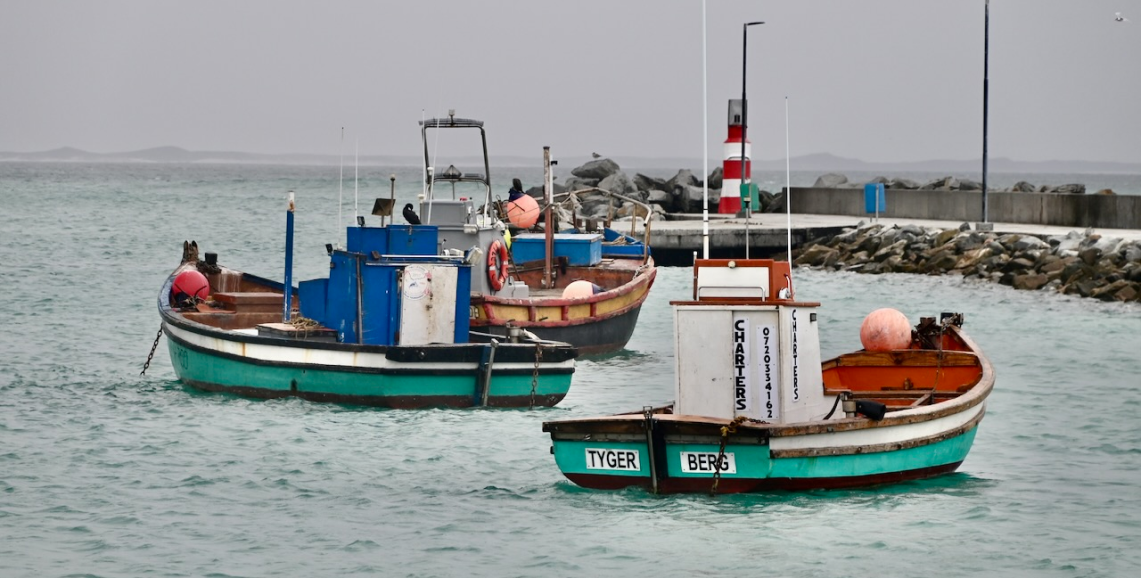Schmidt Marine Technology Partners Announces Recipients of $3.5 Million Global Sustainable Fisheries Initiative
Schmidt Marine Technology Partners, a program of the Schmidt Family Foundation, has awarded $3.5 million in grants to ten organizations and universities in seven countries for the development of new tools and innovations that will improve the sustainability of global fisheries, the program announced today.
“Tens of millions of jobs around the world depend on fisheries, and seafood is the primary protein source for 3 billion people,” said Wendy Schmidt, president and co-founder of the Schmidt Family Foundation. “The innovators chosen to receive these grants are ensuring that fishers and fisheries—and by extension all of us who rely on them—are secure and sustainable worldwide.”
Although more investors are funding ocean technology today than in years past, developers need considerable early-stage support to advance from an idea to wide use of a technology. The sustainable fisheries initiative—to which Schmidt Marine has committed $2 million in new funding, with partners Oceankind and Builders Initiative contributing the additional $1.5 million—aims to address that gap.
“Increasing the sustainability of fisheries is challenging, but we think that both technology and philanthropy have important roles to play,” said Mark Schrope, director of Schmidt Marine Technology Partners. “We try to take a realistic approach by focusing on solutions that offer significant benefits not just for the environment, but also for the fishers themselves.”
The 10 projects selected for grants—ranging from $150,000 to $500,000—seek to reduce bycatch, prevent illegal fishing, improve data collection on fisheries and fish populations, and increase the transparency of a fish’s journey from ocean to table. A team of seven expert advisers and additional tech reviewers from nonprofits, government, and industry helped evaluate proposals from a pool of 200 applications from 20 countries across six continents. Schmidt Marine selected grantees based on the environmental benefits of their proposed ideas, as well as their incorporation of sound fisheries science and management principles, and, where applicable, the practical appeal of the new technologies to fishers.
The funding recipients are:
- Katchi Technologies (Yarmouth, Nova Scotia, Canada): An alternative trawling net outfitted with a cable-mounted system that ensures the net stays open and is automatically controlled to prevent contact with the seafloor. The system also reduces drag by an estimated 30%, which in turn further reduces carbon emissions, fuel costs and bycatch while also increasing fisher safety.
- Trygg Mat Tracking (Oslo, Norway): Data-rich and easy-to-use software that enables countries to make quick and informed decisions on who can enter their ports and what to target in their inspections to stop illegal fish landings.
- Abalobi (Cape Town, South Africa): Development and deployment of software that integrates fishing data with processing plant data to provide ocean-to-market tracking that helps prevent illegal fishing and connects small businesses to larger markets.
- University of Haifa, work led by Roee Diamant, Ph.D. (Haifa, Israel) in partnership with the University of Zagreb and Rujer Boskevic Institute: A “swarm” of low-cost underwater autonomous robots that coordinate for better acoustic detection and size estimation of fish populations.
- Centro de Ciencas do Mar (Center for Marine Science) (Faro, Portugal): A redesigned fishing net, developed in partnership with fishers, that could reduce bycatch in certain squid and other fisheries by 40%, reducing net damage and protecting sensitive habitats.
- Cornell University, work led by Aaron Rice, Ph.D., (Ithaca, N.Y.) in partnership with Marc Dantzker, Ph.D. of Fisheye Acoustics (Arlington, Va.): A new autonomous audio/video technology that allows researchers to identify fish species based on the specific unique sounds they emit. With this information, inexpensive passive acoustic monitoring techniques will be better able to track and estimate fish populations for conservation, sustainability and research.
- Allen Institute for AI (AI2), in association with Ocean Aero (Gulfport, Miss.) and ThayerMahan (Groton, Conn.): Tools to improve the detection, interdiction and prosecution of illegal, unreported, and unregulated (IUU) fishing activities. The integration of AI-driven detections from Skylight AI and a modified ThayerMahan acoustic system into the TRITON—an environmentally powered Autonomous Underwater and Surface Vehicle (AUSV)—promises a revolutionary approach to securing our oceans against IUU fishing.
- Arizona State University, work led by Jesse Senko, Ph.D., (Tempe, Ariz.): Low-cost lights, powered by solar energy, that easily hook on to fishing nets and reduce bycatch of threatened species including sea turtles and sharks.
- Wildaid (San Francisco, Calif.): An app that provides accurate fishing and vessel data to rangers to help them deter illegal fishing in marine areas and better protect marine wildlife and the coastal communities that depend on them.
- Fishtek Marine (Devon, England): An evaluation of the effectiveness of multiple bycatch reduction tools such as a shark-repellent device for longline fishing.
